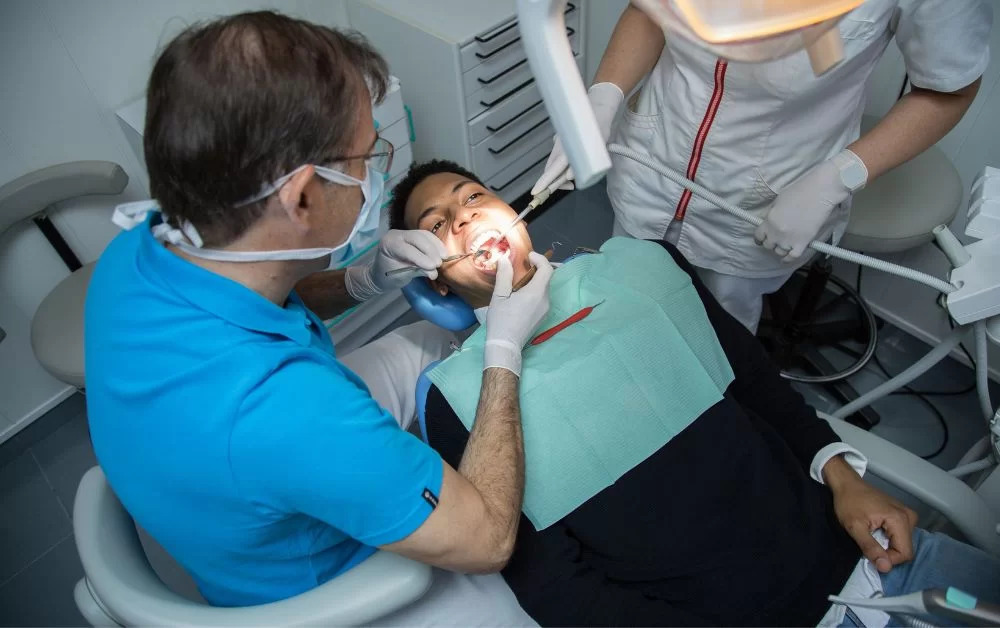Wisdom teeth removal is a common dental procedure, but like any surgery, it carries risks, including the possibility of infection. Infections after wisdom teeth removal can occur in the extraction sites or in surrounding tissues. Prompt treatment is essential to prevent complications and promote healing.
One of the most common signs of infection is persistent pain and swelling in the extraction area. Other symptoms may include fever, difficulty opening the mouth, foul taste or odor in the mouth, and swollen lymph nodes in the neck. If you experience any of these symptoms after removal, it’s important to contact your dentist or oral surgeon immediately.
Treatment for infection after wisdom teeth removal typically involves a combination of measures to eliminate the infection and relieve symptoms. Your dentist or oral surgeon may prescribe antibiotics to fight the infection. It’s important to take the full course of antibiotics as prescribed, even if your symptoms improve before you finish the medication.
In addition to antibiotics, your dentist may recommend other treatments to help reduce pain and swelling. Over-the-counter pain relievers such as ibuprofen or acetaminophen can help alleviate discomfort. Applying ice packs to the outside of your face can also help reduce swelling and numb the area.
Rinsing your mouth with warm salt water several times a day can help keep the extraction site clean and promote healing after wisdom teeth removal. Be gentle when rinsing to avoid dislodging the blood clot that forms in the extraction site, as this can lead to a painful condition called dry socket.
It’s important to follow all post-operative instructions provided by your dentist or oral surgeon after wisdom teeth removal to minimize the risk of infection and promote healing. This may include avoiding certain foods that could irritate the extraction site, refraining from smoking or using tobacco products, and practicing good oral hygiene.
If you develop a dry socket after wisdom teeth removal, which occurs when the blood clot is dislodged from the extraction site, you may experience severe pain and foul odor or taste in the mouth. Dry sockets can increase the risk of infection and delay healing. Your dentist can provide treatment to alleviate your symptoms and promote healing, which may include flushing out the socket and applying medicated dressings.
In rare cases, an infection after teeth removal can spread to other parts of the body, leading to more serious complications. If you develop symptoms such as difficulty breathing, chest pain, or severe swelling of the face or neck after wisdom teeth removal, seek medical attention immediately.
Preventing infection after wisdom teeth removal starts with choosing a skilled and experienced dentist or oral surgeon to perform the procedure. Following all pre-operative and post-operative instructions after wisdom teeth removal can also help minimize the risk of complications.
In conclusion, while infection after teeth removal is possible, prompt treatment and proper care can help prevent complications and promote healing. If you experience symptoms of infection after having your wisdom teeth removed, contact your dentist or oral surgeon right away for evaluation and treatment.
Treatment for infection after wisdom teeth removal typically involves a combination of measures to eliminate the infection and relieve symptoms. Your dentist or oral surgeon may prescribe antibiotics to fight the infection. It’s important to take the full course of antibiotics as prescribed, even if your symptoms improve before you finish the medication.
In addition to antibiotics, your dentist may recommend other treatments to help reduce pain and swelling. Over-the-counter pain relievers such as ibuprofen or acetaminophen can help alleviate discomfort. Applying ice packs to the outside of your face can also help reduce swelling and numb the area.
Rinsing your mouth with warm salt water several times a day can help keep the extraction site clean and promote healing after wisdom teeth removal. Be gentle when rinsing to avoid dislodging the blood clot that forms in the extraction site, as this can lead to a painful condition called dry socket.
It’s important to follow all post-operative instructions provided by your dentist or oral surgeon after wisdom teeth removal to minimize the risk of infection and promote healing. This may include avoiding certain foods that could irritate the extraction site, refraining from smoking or using tobacco products, and practicing good oral hygiene.
If you develop a dry socket after wisdom teeth removal, which occurs when the blood clot is dislodged from the extraction site, you may experience severe pain and foul odor or taste in the mouth. Dry sockets can increase the risk of infection and delay healing. Your dentist can provide treatment to alleviate your symptoms and promote healing, which may include flushing out the socket and applying medicated dressings.
In rare cases, an infection after teeth removal can spread to other parts of the body, leading to more serious complications. If you develop symptoms such as difficulty breathing, chest pain, or severe swelling of the face or neck after wisdom teeth removal, seek medical attention immediately.
Preventing infection after wisdom teeth removal starts with choosing a skilled and experienced dentist or oral surgeon to perform the procedure. Following all pre-operative and post-operative instructions after wisdom teeth removal can also help minimize the risk of complications.
In conclusion, while infection after teeth removal is possible, prompt treatment and proper care can help prevent complications and promote healing. If you experience symptoms of infection after having your wisdom teeth removed, contact your dentist or oral surgeon right away for evaluation and treatment.

